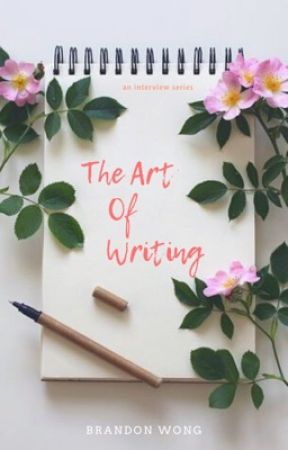I am excited to be joined by screenwriter, showrunner, and executive producer Michael Jamin today. Michael is a seasoned veteran with key roles in the production of various television shows, including King of the Hill, which was nominated for a Primetime Emmy Award for Outstanding Animated Program. An expert in screenwriting, Michael discusses his strategy for delivering strong punchlines, planning the premise of different episodes, and controlling quality of scripts from different writers among various topics.
***
Brandon Wong: You have been writing for television for over 25 years. What inspired you to get into the screenwriting business?
Michael Jamin: When I was in high school, there was a show called Cheers, which was one of the best sitcoms ever. I remember watching it and thinking I want to be involved with that show somehow. I later discovered that there were people who wrote it—it didn't occur to me that there were television show writers, or that it was a job or career—and after college, I moved to Los Angeles with the intention of being a sitcom writer.
BW: You mentioned Cheers there, but are there any other TV shows or movies that have inspired your writing?
MJ: There are too many to name, but certainly Cheers was the one that kicked it off. Seinfeld is also brilliant. I remember early on in my days as a TV writer I was lucky enough to work with a bunch of ex-Cheers writers, and then later I worked on the Cheers sound stage on a different show, and I just remember thinking, "I've made it. I've arrived." I was in the place of the people who did what I wanted to do as a kid.
BW: You have writing credits in a number of TV shows, including King of the Hill, Maron, and most recently, Tacoma FD. Many of your works are in the comedy or sitcom realm. What are your tips and tricks to creating and delivering the perfect punchline?
MJ: It can't sound like it's written. A good punchline can't sound like it was conceived by a team of writers. It really has to come from character, so it shouldn't sound joke-y. The perfect punchline is something that one character can say and you can't give that same joke to a different character, because it's coming directly from their personality.
BW: Speaking of characters, you've worked with a lot of different personalities, like George Lopez, Marc Maron, and Rhett and Link, among others. Do you find that there are challenges with writing dialogue for specific characters? Is it a different process each time?
MJ: No, actually, the stronger the voice of an actor or comedian, the easier it is to write because you can imitate that person. You make fun of them. For example, with Marc Maron, he has a specific way of talking. He says "engaged" a lot. So when I'm writing for him, I'm basically mimicking him. I remember one time in the writer's room, I wrote a line of dialogue and he was like, "I wouldn't say that". I told him, "You absolutely would say that! I've heard you say stuff like that!" and he realized that he did.
BW: There are many parts in the screenwriting process. What do you find to be the most enjoyable part of screenwriting?
MJ: When you can make someone laugh or cry. That's really the goal of anything: to bring out emotion in people. I remember early on in my career I wrote a scene for Just Shoot Me! that I knew was going to get a big laugh. We shot that show in front of a live studio audience, and I remember turning around to watch the audience—I didn't want to watch the actors, I wanted to watch how the audience react—and they just exploded. That's what I'm here for. That's what I get a kick out of. Just watching the audience explode with emotion.
BW: Do you get a personal satisfaction when you finish writing a scene that you know will draw a reaction from the viewer?
MJ: Yeah, but sometimes you get it wrong. There have been times where I have written jokes that I thought was going to kill, but they bombed, and I went, "What was I thinking? I thought for sure this was going to work." But that's fun too. That's entertaining as well.

YOU ARE READING
The Art of Writing
Non-FictionBy definition, writing is the marking of coherent words or the composing of texts. Whether we are sending a text message or penning a novel, writing is an integral part of our daily lives. Given the importance, how can we improve and become better w...

